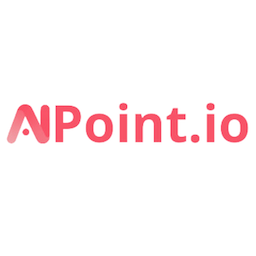Browse our elite collection of AI agents and build your digital workforce in minutes, not months.

A Cutting-Edge Platform to Monitor and Optimize AI Prompts for SEO and Brand Visibility

AI competitive analysis agent providing real-time insights on pricing, features, and market positioning.

AI agent for autonomous internet research, analyzing data and generating cited reports in real-time.

AI-powered platform designed to enhance scientific workflows in the chemical and pharmaceutical industries.

AI-powered platform for precise company research and analysis, delivering tailored insights for smarter decision-making.

AI-driven stock analysis and market screening for informed investment decisions

AI-powered agent for real-time stock analysis, market insights, and financial data aggregation
AI research tools improve the research process by automating data collection, analysis, and interpretation, speeding up the process, reducing human error, and providing insights that researchers may not have identified manually. AI also helps identify trends and patterns across large datasets.
Some of the best AI tools for research include IBM Watson, Zotero (for reference management), EndNote (for managing references), Google Scholar (for literature search), NVivo (for qualitative analysis), and Scopus (for data analytics).
AI-powered research tools help by using machine learning algorithms to process large volumes of data, identify patterns, make predictions, and visualize data, allowing researchers to interpret complex datasets more easily and gain actionable insights faster.
AI enhances productivity by automating repetitive tasks, such as data entry, literature searches, and data preprocessing, allowing researchers to focus on higher-level analysis, hypothesis testing, and writing rather than manual data handling.
Key benefits include time savings, improved accuracy, faster insights, automated data analysis, improved decision-making, and the ability to handle large datasets efficiently, helping researchers make more informed decisions.
AI research tools improve accuracy by using advanced algorithms to detect patterns and relationships in data that humans may miss. They also reduce human error, optimize data processing, and can help validate results through predictive analytics and machine learning models.
AI tools assist with qualitative data analysis by using natural language processing (NLP) to analyze text data, identify themes, extract insights, and automate sentiment analysis or coding, making it easier to work with large amounts of qualitative data like interviews and surveys.
AI tools support data-driven decision-making by providing real-time insights, predictive models, and visual analytics, allowing researchers to make decisions based on quantitative evidence and patterns identified from vast datasets.
In scientific research, tools like Google DeepMind, TensorFlow (for machine learning), IBM Watson for Science, SciPy (scientific computing), and ArXiv (AI for papers) help in tasks such as data modeling, simulations, and research analysis, speeding up scientific discovery and analysis.
AI tools used in scientific research include DeepMind (for AI-driven research), TensorFlow (machine learning), MATLAB (data analysis and modeling), IBM Watson for Oncology (cancer research), and Nature AI (AI in scientific publications). These tools help analyze data, simulate experiments, and provide insights into scientific discoveries.